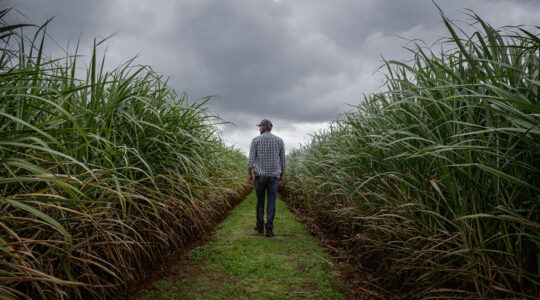The RACQ has called for a Brisbane “Western Bypass” road to be placed on the transport agenda after new data confirmed major highways are down to a crawl during peak hour.
Areas of the Centenary Motorway on Brisbane’s south and the Pacific Motorway linking Brisbane and the Gold Coast, in particular, are struggling to cope.
The RACQ’s 2023 Average Speed and Travel Time Report, released this week, showed the weekday average speed on the Centenary Motorway between Ipswich Motorway and Fig Tree Pocket Road was just 37.4km/h between 6am and 10am.
On the Pacific Motorway, the average speed between North Quay and O’Keefe Street was 28.6km/h between 3pm and 7pm on weekdays and 37.3km/h during the morning rush.
RACQ Head of Public Policy Michael Kane said works underway to upgrade the Centenary Bridge on the Centenary Motorway would help but would not be enough to curb growing “traffic pain”.
“Any long-term planning for the Centenary Motorway corridor must consider a connecting ‘Western Bypass’ corridor linking through to the proposed Gympie Road Bypass Tunnel,” he said.
“By fixing, finishing and extending our outer ring of motorways we will take traffic off our local roads and corridors by allowing them to bypass Brisbane altogether.”
The RACQ figures are taken from Bluetooth average speed data collected by the Department of Transport and Main Roads.
The figures showed that the Centenary Motorway between the Ipswich Motorway and Dandenong Road had average morning peak hour speeds of just 24km/h in February, March and August 2023.
The Gateway Motorway from Buchanan Rd (Nudgee) to the Pine Rivers Bridge was also a hot zone recording 42.3km/h average speeds in the afternoon peak across the year.
On the flipside, Pacific Motorway upgrades on the Springwood (south of Brisbane) stretch increased average morning peak hour speeds from 45.2 km/h in 2019 to 71.0 km/h in 2023.
The RACQ report said, although a full analysis of the whole Brisbane and Gold Coast road network had not been carried out, it was clear that the number of roads with slowing peak hour speeds had increased since 2019.
In the Brisbane metropolitan area, 68 percent of roads were slower than in 2019 in the mornings and 73% in the afternoons.
In the Gold Coast area, 78 percent of roads were slower in the morning than five years ago and 69 percent were slower in the afternoon.
The full report can be found on the RACQ website








